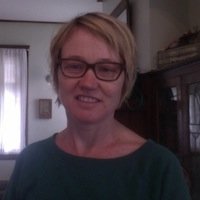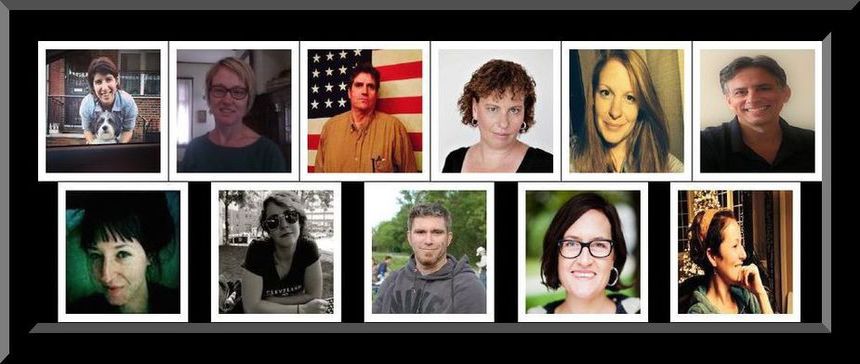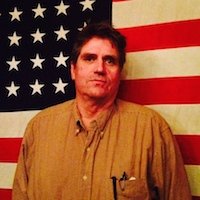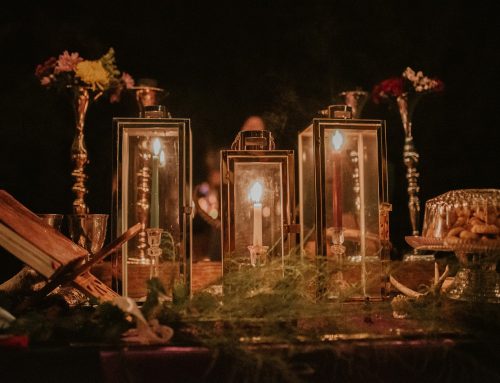Belt’s second annual Members Week is in full swing. Turning away from our usual content and sharing a bit from within, here’s the first installment in our brief introduction to the Belt staff — their views on our publication and the Rust Belt region, as well as details on their lives away from Belt. Of course it’s impossible to really know somebody from their answers to a few brief questions, so if you want to get to know us better, come to our First Anniversary Party on Thursday, October 16, at The Bop Stop (2920 Detroit Ave., Cleveland) and talk with us face-to-face.
Without further ado, let’s meet the Belt staff …
Angela Bilancini, Senior Editor 
Angela graduated from Magnificat High School and studied English at the College of Wooster.
What jazzes you about Rust Belt journalism? I live here, so I like to see the region portrayed in a realistic, local way that’s also really smart and well done. The area is so under-covered because of the region’s economic history. It hit its peak and has been declining for a long period of time. There’s something powerful about people from the area taking ownership of a media outlet and telling their own stories, locally. That makes you feel pride about where you’re from, and also gives you the ability to look at things more accurately.
Favorite Rusty hangouts? Guide to Kulture, Rib Cage, and Cleveland Cinemateque.
Erin Greene, Shipping Fulfillment Manager 
Originally from Avon Lake, Ohio, Erin holds both bachelor’s and master’s degrees in English from Case Western Reserve University. After graduating, Erin worked as a communications analyst for The Pantry, a Fortune 500 headquartered in North Carolina. But she moved back after realizing how much she missed Cleveland. “There’s just something that draws me back here. I’m not quite sure how to put it.”
On Belt Magazine: We don’t sugarcoat things. We are open to reporting on real issues without trying to appeal to a mass audience about what the Rust Belt is. We’re gritty, unapologetic, and we have integrity — which is rare in a small publishing house. There is power in the personal story. Most reporting about Belt cities in the news is sociological or economic in nature. We loose the personality of the region in those pieces; we lose the face behind the statistic. That’s where personal stories come in. They come from a very reflective place, and give a comprehensive picture of a person’s historical connection to a place.
When Erin isn’t shipping books and membership cards, she writes for bass fishing website Tackle Center, spends time with her three children, and runs around Cleveland’s parks and lakefronts.
Dan was born and raised in Euclid, Ohio, and attended St. Ignatius High School. He launched his career in journalism freelancing for The Cleveland Edition in 1985, and shortly after worked as a reporter for Lake County’s The News-Herald. A position as an investigative reporter for the Fort Worth Star-Telegram brought Dan to Texas, where he remained until 2012. He began working as senior editor for U.S. News & World Report in 1992, where he covered the Oklahoma City bombing, Columbine High School shootings and the Branch Davidians in Waco. In 2000, Dan published his memoir First and Last Seasons: A Father, A Son, and Sunday Afternoon Football which was reviewed by Deanne Stillman of the New York Times: “The Browns may have choked in their first season, but in his father’s last, with this book, McGraw has broken the local jinx. His memoir is a successful Hail Mary pass if ever there was one.” Dan’s work has appeared in The Village Voice, Fort Worth Weekly, People Magazine, Boston Globe, Dallas Morning News, and Cleveland Magazine.
On Belt Magazine: I’ve done a lot of work for national publications and I find doing local stories sometimes have more meaning. We believe that content is more important than the platform it comes from and we don’t believe our audience is as stupid as most of the news media thinks they are. I think people are pretty dumb, but just not as dumb as people think they are.
Favorite Rust hangouts? I like going to Whiskey Island, where the Cuyahoga River goes into Lake Erie, and watching people fish. I also like thrifting. I buy Oxford, button-down collared shirts for $2.00 (powder blue) at the store on Detroit Avenue and W. 80th St.
What Dan doesn’t do: I am not an avid bowler, I do not fish — I just watch people fish — and I don’t eat sushi.
Dan wrote in his book, “I broke the rules because I didn’t know them.” And he still operates that way.
Laura Putre, Senior Writer and a co-founder of Belt Magazine 
Originally from Parma, Ohio, Laura studied Journalism at Kent State University and went on to receive her MFA from Wichita State, where she lived for about eight years before moving back to Cleveland and working at Cleveland Scene and Free Times as a writer and editor. In 2003, Laura left Cleveland for Chicago where she worked as an editor for Chicago Journal until 2007, and then came home.
Why’d you come back? Cleveland is an affordable place to raise a family, and there’s a ton of stuff to do. I’ve been freelancing since being back.
What jazzes you about Rust Belt journalism? The Rust Belt is a distinctive place, and it’s important we tell stories about it because no one else is going to tell them — no one is going to tell them well. This region doesn’t always get attention and understanding from people on the coast. It has its own economy. We had to recover from job loss, but there are a lot of resources still here if we can just harness them. We come from a place where our workforce wasn’t necessarily educated, because a college education was not always a priority. We are a hardworking population with historically blue-collar jobs. At Belt, we are taking our history to another level by taking a good look at it.
The readership here has been underestimated. We are hungry for analysis and criticism. People want to hear about their history, but not from the perspective of New York City writers. There’s a tendency in Cleveland to cheerlead, and people are reluctant to have intense debates and offer critiques. I think people are afraid to voice criticism because we can’t lose what we have. For me, criticism is refreshing. It’s important to focus on innovative things people are doing, but it’s also important to focus on what’s going on economic and racial disparity in the neighborhoods. It’s important to cover that.
When Laura isn’t writing and editing, she’s spending time with her seven-year-old daughter, or hanging out at in Lakewood’s Mahall’s, Beachland Ballroom, or in Tremont.
William Rickman, Managing Editor 
Bill grew up in Latham, New York, and studied communications at Marist College before moving to New York City in 1997 to work as an editor at PR Newswire. Mental images that came to mind before he transferred to their Cleveland office in 2008: “I immediately pictured steel mills, crappy sports teams and bad weather. I had low expectations for Cleveland.”
So, why haven’t you left? My expectations were inaccurate almost immediately. While certainly smaller than some other cities, Cleveland has pretty much everything anyone would ever need. The negative stigma attached to Cleveland is completely unfounded. There are enough people here who are interested in seeing Cleveland rise up, see its positive aspects and embrace the city. It all gives Cleveland an appealing, livable feel.
On Belt Magazine: I like how our staff and writers are treated, and I like how we’ve had a nice organic growth. We’re not in a desperate to rush to be something we’re not. You don’t need to be in New York or Los Angeles to thrive as a good writer. There are plenty of great, intelligent, writers here in the Rust Belt — and I think they’re a bit hungrier to get their information out there.
When Bill isn’t editing Belt stories, he is competing on the Western Reserve Rowing Association masters team, coaching St. Edward’s High School’s rowing team, and tending to his beehive. “Last year was a beekeeping failure, but this year I managed to keep all of my bees happy and healthy — and that has resulted in a good harvest of honey.”
Support paywall free, independent Rust Belt journalism — and become part of a growing community — by becoming a member of Belt.







